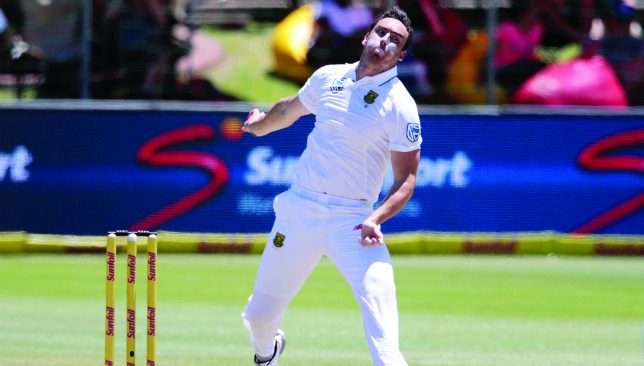
Cricket is an uncertain game in the best of circumstances.
Pitches, weather, umpiring decisions, unlucky dismissals all have a major say in the final outcome even when the players themselves are performing at the optimum level. If the team itself is grappling with issues, the results are like a shot in the dark.
South Africa have had some serious issues over the past few seasons. Injuries to top players like AB de Villiers and Dale Steyn has hurt their plans on the field, while the back-and-forth captaincy took a long time to settle, with Faf du Plessis only recently taking over as skipper of all formats following the prolonged obfuscation from Hashim Amla and de Villiers. And the quota system which stipulates that at least six players in the national team must be of colour is an altogether different issue that goes beyond the cricketing field.
Just to add zest to the bubbling pot, the issue of Kolpak players has gutted the South African bench.
Protea players have regularly made the long trip to the British Isles under the Kolpak rule, which allows citizens of countries that have free trade treaties with European Union to have same rights regarding work as Europeans.
It is understandable in a way because there have been many supremely talented South African cricketers who couldn’t get regular game time simply because the competition was so intense. That all-rounders like Albie Morkel and Chris Morris, who would have walked into any other contemporary limited overs side, didn’t enjoy a long career is proof of that. While these two all-rounders haven’t turned ‘Kolpak’, many others have.
The most recent and prominent case is that of fast bowler Kyle Abbott. The pacer, who will turn 30 soon, had become their premier seamer after injuries to Dale Steyn and Morne Morkel. The right arm pacer, however, had been an irregular member of the team in all formats since his debut in 2013 and is said to have decided on signing a Kolpak deal with Hampshire in August last year as he wanted the stability that comes with a secure county deal.
However, by the time the news came out this month, Abbott had become the first choice pacer and the South Africans had even pencilled him as their main weapon for the Champions Trophy in England in June. Let’s just say, the South African team and management are fuming and Abbott has burned some major bridges. If we look at other South African international players like Rilee Rossouw (Hampshire), Simon Harmer (Essex) Stiaan van Zyl (Sussex) and Hardus Viljoen (Derbyshire) who have ended their international careers to play county cricket, the seriousness of the situation becomes clear.
Journalist Andy Bull, writing for The Guardian, revealed how the impending closure of the Kolpak route following the Brexit vote is resulting in South African players ‘getting in’ while they can. While we may see an end to that practice after Britain cuts ties with the European Union completely and South Africans can’t ply their trade in the county circuit the way they did earlier, the impact of this exodus will be felt for a long time.
Firstly, the current make up of the South African team has altered greatly. Abbot and Rossouw were said to be in the mix for the Champions Trophy. That is no longer the case. Not only that, the players mentioned above who have recently signed Kolpak deals were part of the back-up which any top international side needs.
With the demands put on current cricketers, any country needs a pool of at least 20-25 fit players to field competitive teams across formats.
Forget about the next in line, the South Africans don’t know whether those already given a chance will be available this year.
Explainer: The Kolpak rulehttps://t.co/EzwtsqJtbI
— ESPNcricinfo (@ESPNcricinfo) January 7, 2017
It also gives South Africa a big headache as far as handling disgruntled players is concerned. Yes opportunities may not be great but the management can’t give longterm contracts to every player with a complaint because then everyone could start doing so. It’s a hit South African cricket is gearing up to take because frankly, there is no way out of this situation. There are talented cricketers who deserve more playing time but not everyone can be accommodated and Cricket South Africa isn’t exactly awash with funds.
It amazes me how South Africa continue to be so competitive despite a clear talent drain and the quota system.
However, we must remember there are only so many world class players any system can produce.
South Africa could start to feel the pinch by next season when players will need to be rotated and there might not be ideal replacements in place. We might have a situation where young quick Kagiso Rabada may have to play for a longer duration or wicketkeeper Quinton de Kock may not get any substantial break.
These are prickly situations unique to South African cricket.
That they are still one of the best teams going around is testament to the quality of the current crop of
players.
The Support is overwhelming! Thank you everyone for the kind words #81
— Kyle Abbott (@Kyle_Abbott87) January 6, 2017